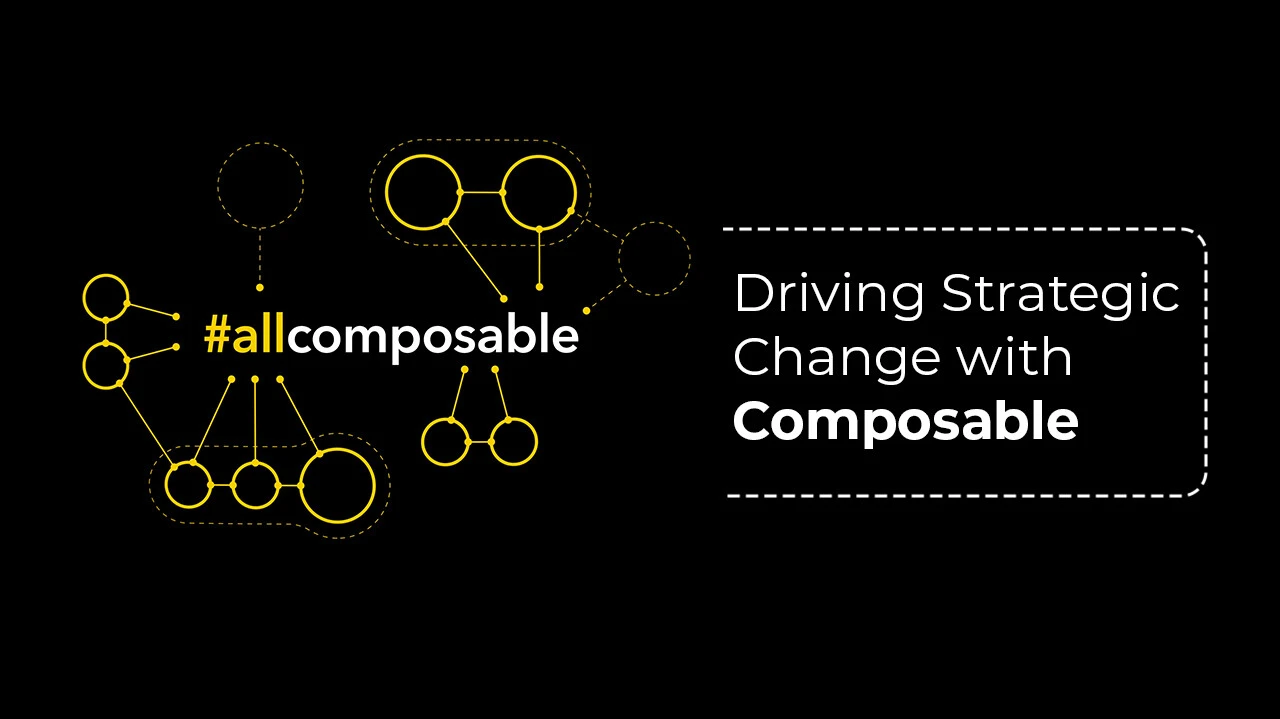
All Composable interview series with Dirk Weckerlei, Patrick Fass, and Christopher Hanna
This series of interviews with experts, such as Patrick Fass and Christopher Hanna, is focused on unravelling the mysteries of composable commerce and validating its promises in real-life scenarios. The aim is to assess whether composable commerce delivers on its promises of time-to-value and freedom of choice.
All Composable Part 8: Balancing Organisational Systems | Patrick Fass, Christopher Hanna & Dirk Weckerlei
In this episode of the #allcomposable interview series, Dirk Weckerlei sits down with Patrick Fass, Product Manager for Digital Stores/Webshops at BASF, and Christopher Hanna, Senior Solution Architect, Digital Commerce at BASF, to explore how Composable Commerce is transforming their approach to digital strategy.
Composable Commerce and Complexity in the Context of BASF
BASF is a global leader in the chemical industry, with headquarters in Germany. The company serves customers across many industries worldwide and offers a wide range of products, including chemicals, plastics, performance products, agricultural solutions etc. BASF operates in over 90 countries and has numerous business units that must meet various customer needs. Given its global reach and product diversity, the company faces the challenge of serving various markets and industries with tailored solutions.
The question often arises in such a complex environment: Why add more complexity to an already intricate business structure?
An answer lies in the "Composable Commerce" concept - a modular approach that allows BASF to create specialized, fine-tuned solutions while still building central systems where needed. BASF must find a way to support differentiation at various levels, from specific customer needs to the requirements of individual business units and their working methods. A single, rigid solution wouldn't be able to meet this wide range of needs. Composable Commerce provides the flexibility to offer centralised and tailored solutions to these diverse demands.
A key point is that Composable Commerce allows BASF’s business units to actively shape their transactional presence for the first time. This means they no longer rely solely on standardised IT solutions but can work with the IT department to develop customized solutions that meet their specific market demands. This new flexibility enables the business units to be more active in the company’s digital strategy, highlighting their unique positioning even in transactional and online interactions.
Additionally, Composable Commerce leads to a balanced system where responsibilities are distributed, and each business unit can own and actively manage the customer experience. This sense of ownership boosts employee motivation and satisfaction, leading to higher-quality work, greater engagement, and more robust identification with the results. In practice, this means better execution and faster delivery of solutions—ultimately speeding up the "time to value."
Convincing internal management that investing in the foundational infrastructure will have a substantial impact on future deployments and overall performance is crucial, even if it requires temporarily slowing efforts on current solutions. It's about balancing security and stability with the desire to innovate and explore new, uncharted territories. By taking intermediate steps and leveraging agility, BASF can manage risks while embracing innovation to future-proof its operations.
Finally, this approach also has a positive impact on attracting new talent. The opportunity to work in a flexible, modular environment where employees are given real responsibility is highly appealing to potential new colleagues. This modern way of working draws talented individuals who appreciate collaboration and agility and want to contribute to innovative projects.
Composable Commerce at BASF helps manage complex business demands efficiently and strengthens company culture, boosts employee satisfaction, and leads to faster and better market outcomes - giving BASF a significant competitive advantage in an ever-changing world.

